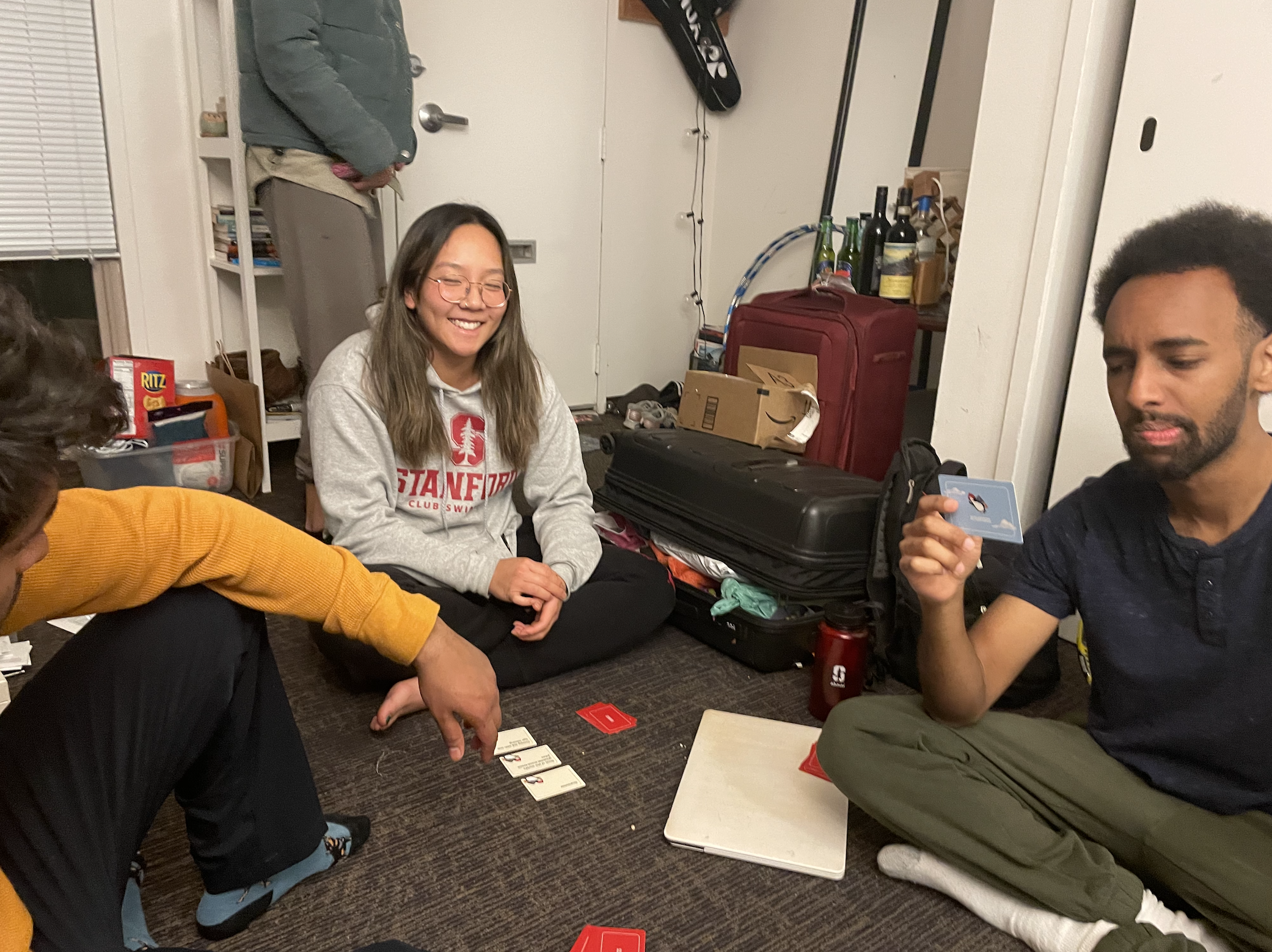To explore storytelling and fiction in games, I played Wing It! with my friends Sterling, Jess, and Santhosh.
Wing It! is a judging game similar to Apples to Apples or Cards Against Humanity. To play the game, players need to spin up solutions to silly scenarios, telling a story using the resource cards that they have. Each round, a scenario card is drawn, with some wild situation like “the love of your life is suddenly possessed and is attacking you with kitchen knives” or “your bathtub is overflowing and will soon flood your landlord’s apartment downstairs, who is an avid stamp collector.” Players need to play three of their resource cards, which are also pretty random – like “a magnetic compass,” “a cup of children’s tears,” or “a pink feather duster” – and tell a story using those cards which overcomes or solves the situation. Similar to other judging games, it’s up to whoever’s judging to subjectively choose the “best” story and the winner of the round. You can play until someone gets a certain number of wins (I think the rules suggest 5 or something like that), but I just played a few rounds with my friends to get a feel for the game before we stopped.
I think this is a game best played with people you know well – Sterling, Jess, and Santhosh are my best friends, so we feel really comfortable around each other and don’t mind being weird around each other. Because of this, I think Sterling and Santhosh had no problem really leaning into their stories, yelling, making sound effects, and generally just goofing around. Jess and I are generally a little more reserved as people, so I felt a little awkward and my stories were less exciting in comparison, but the strangeness of the cards helps to make for some interesting scenarios. It was especially satisfying when you could piece together random cards in a way that felt apt to the situation – like the card “translation dictionary” fit perfectly because my possessed lover started speaking in tongues, so I could then use the dictionary to translate what they were saying.
Fellowship is definitely the main type of fun here, as is the case with most judging games. You’re just enjoying each other’s company and each other’s funny ideas. Though it is supposed to be competitive (each person is trying to tell the best story), we often jumped into each others’ stories and build off of them as a group, so in the end nobody’s story was really completely their own. I don’t know if the designers intended for this to happen, but I think it made the experience more enjoyable!
In thinking about interactive fiction and storytelling, I think it was fun to find arcs within the stories that we told – for example, Jess told a story where she first tried to reason with her possessed lover, but that didn’t work, so she used a feather duster to fight them, but then her lover fought back and they had to tussle out in the garden, where Jess used special herbs to then defeat them. It’s funny that there are small try/fail cycles even within the short impromptu stories that we tell – I guess we just know that the final outcome will be more satisfying if we have to fight to get there.



